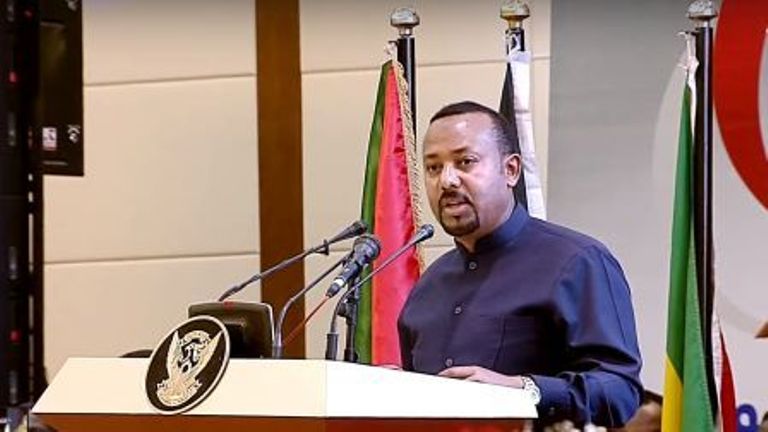Abiy rejects Hamdok’s call for tripartite meeting on GERD talks

After the failure of a meeting held in Kinshasa earlier this month, Abdallah Hamdok called his Egyptian and Ethiopian counterparts for a videoconference meeting on 23 April to reach a compromise on the stalled talks.
Hamdok said his call for the meeting was based on the Declaration of Principles (DoP) of 2015 which provides that in the case of failure to solve a dispute, the parties “Can ask for mediation or refer the matter to their heads of states or prime ministers”.
In a statement released on Wednesday, the Ethiopian foreign ministry stated that Prime Minister Abiy Ahmed rejected Hamdok’s call for a tripartite meeting because there was no failure in the negotiations.
Abiy said “that assuming the negotiation process as a failure is not right because we have seen some tangible results” before pointing to the signing of the DoP, and the establishment of the National Independent Scientific Research Group to discuss the filling of GERD’s 74 billion cubic metre reservoir.
Instead, he suggested that “the way forward on the GERD negotiations is to request the Chairperson of the African Union, H.E President Felix Tshisekedi to call the meeting of the Bureau of the Assembly of the AU”.
In the Kinshasa meeting, Ethiopia rejected the Sudanese proposal for a four-way mediation led by the African Union and involving the United Nations, the United States and the European Union.
In a press conference after the Kinshasa meeting, Sudan’s Irrigation Minister Yasir Abbas disclosed that Ethiopia rejects the Sudanese proposal because they refuse participation of the United Nations in the GERD process.
Abiy in his letter to Hamdok said the Kinshasa meeting agreed “on the continued and the enhanced role of the observers, namely EU, South Africa, and United States (…)”.
For his part, Ambassador Dina Mufti Spokesman of the Ethiopian Foreign Ministry released more details about a letter his government sent to the UN Security Council on 16 April.
The letter indicated Ethiopia’s preference for the direct talks under the auspice of the African Union and denounced the call by Egypt and Sudan for a legally binding agreement.
‘The insistence by the two countries to maintain the unjust status quo and foreclose Ethiopia’s water use upstream of the GERD under the pretext of “concluding a binding comprehensive agreement” is unacceptable,’ according to Mufti.
Sudan says the legally binding nature of the agreement will ensure it cannot be amended or terminated unilaterally.
(ST)
